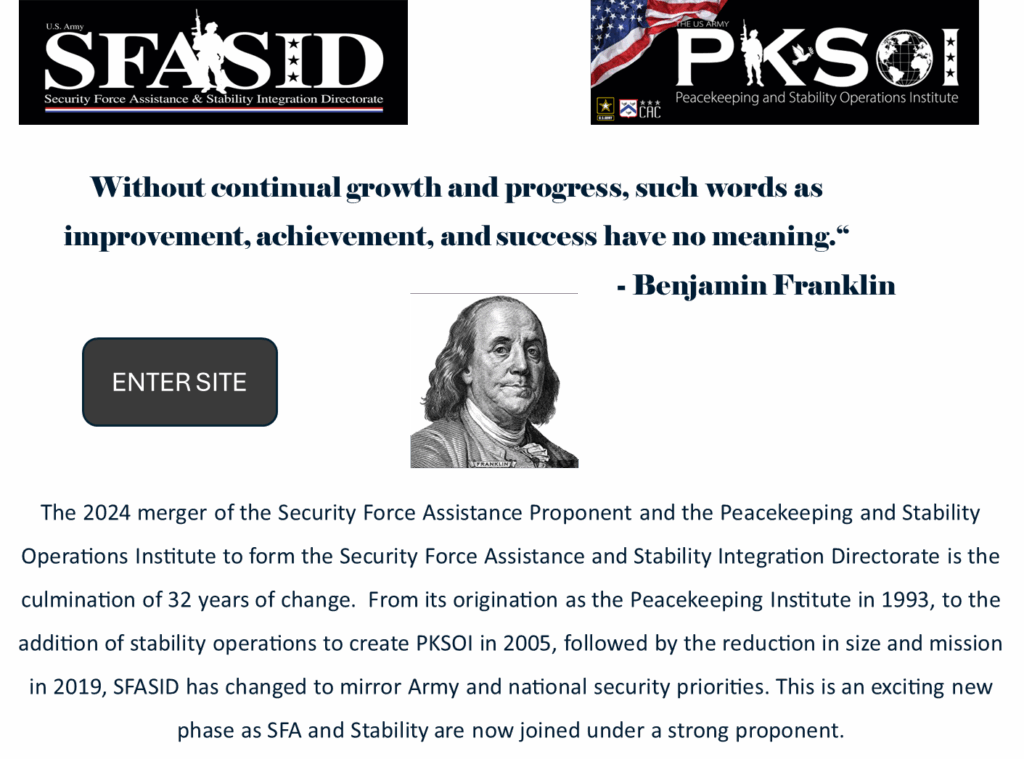Central African Republic (CAR) and MINUSCA – Current Political and Security Dynamics
Last update on: 19 November 2020

From World Bank
Political Context
Elections in 2016 brought an end to three years of political transition and turmoil.
Since 2016, the Central African Republic has been governed by President Faustin-Archange Touadéra and Prime Minister Simplice Sarandji. The next presidential elections are scheduled to be held between December 2020 and March 2021.
CAR President Touadera announces candidacy for December election – https://www.aljazeera.com/news/2020/9/26/car-president-touadera-announces-candidacy-for-december-election
On February 6, 2019, the Government of the Central African Republic signed an African Union-mediated peace agreement with 14 armed groups. This agreement has been endorsed by the international community. The African Union and the Economic Community of Central African States (ECCAS) serve as guarantors of the agreement, while the UN peacekeeping force (MINUSCA) plays a critical support role in the background.
The World Bank. (2019). The World Bank in the Central African Republic. Based on data set released 2019-11-25 and accessed 2020-09-23 at https://www.worldbank.org/en/country/centralafricanrepublic/overview Terms of use https://www.worldbank.org/en/about/legal/terms-and-conditions.
In July, the Council is expected to renew the 2127 Central African Republic (CAR) sanctions regime, which expires at the end of the month; the mandate of the Panel of Experts supporting the 2127 CAR Sanctions Committee expires on 31 August and is also expected to be renewed in July.
The mandate of the UN Multidimensional Integrated Stabilization Mission in the Central African Republic (MINUSCA) expires on 15 November.
Key Recent Developments
On 22 June, the Security Council convened an open videoconference (VTC) meeting, followed by a closed VTC session, on the Secretary-General’s latest report on MINUSCA. Under-Secretary-General for Peace Operations Jean-Pierre Lacroix was joined by Matias Bertino Matondo, AU Special Representative and head of the AU Office in the CAR, and Koen Vervaeke, Managing Director for Africa at the European External Action Service of the European Union. Lacroix told members that despite the increased challenges presented by the COVID-19 pandemic, CAR continues to make progress on the implementation of the Political Peace Agreement, which was signed in Bangui by the CAR government and 14 armed groups on 6 February 2019. A recent resurgence in violence has, however, undermined the process.
The security situation in the CAR remains precarious. A number of violent clashes throughout the spring in the CAR’s north-east as well as violence in and around the towns of Bria and Ndélé have left dozens dead and displaced over 2,000 people. MINUSCA announced on 17 May that it was launching Operation “Igana siriri“ (“Bringing Peace” in the local Sango language) in Ndélé to help stabilise the situation. On 17 June, MINUSCA announced another operation in coordination with the Central African armed forces (FACA) to end violence against civilians in western CAR committed by the 3R (Retour, réclamation et réhabilitation) armed group.
The difficult humanitarian and socio-economic situations have been further exacerbated by the COVID-19 pandemic. Approximately 2.6 million people require humanitarian assistance in CAR, with 697,000 civilians internally displaced and another 593,000 people having sought refuge outside CAR. According to the Secretary-General’s most recent report, the CAR government has put in place several mitigating measures for COVID-19, and the number of confirmed cases remains relatively low in the country. The impact of the pandemic on the socio-economic situation, however, has been considerable; border closures and reduced availability of food have led to price increases, and social distancing measures have caused urban transportation costs to rise substantially.
Despite security- and COVID-19-related concerns and the recent uptick in violence, presidential, legislative and local elections are scheduled for December 2020 and early 2021. The Secretary-General’s most recent report noted that the elections “will be affected by the challenges of organizing a sensitive political process in the midst of a global pandemic” and commended the CAR’s electoral authorities for publishing a revised electoral calendar that clearly recognises these challenges but adheres to prescribed constitutional timelines. On 16 May, the UN Development Programme (UNDP) announced that registration forms, critical to the authorities for establishing a voters’ list, had arrived at Bangui airport. Another 32 tonnes of registration materials were delivered to Bangui on 15 June.
Sanctions-Related Developments
In January, negotiations on the renewal of sanctions proved to be difficult, with the main points of disagreement revolving around the question of whether or not to ease the arms embargo on the CAR government. For several years, CAR government officials have requested that the arms embargo on their armed forces be lifted. In 2019, a wide consensus amongst Council members on the need to accommodate some of these concerns about the arms embargo resulted in the amendment of the sanctions regime in resolution 2488 of 12 September 2019. The resolution exempts, after notifying the 2127 CAR Sanctions Committee, supplies of non-lethal military equipment intended for humanitarian or protective use and supplies to the CAR security forces of weapons with a caliber of 14.5mm or less that are intended solely for the support of or use in the CAR security sector reform process. Resolution 2507, renewing the sanctions regime, passed by a vote of 13 in favor to none against. China and Russia, citing their view that the Council should do more towards the complete lifting of sanctions on the CAR government, abstained. This was a departure from previous unanimous renewals of the sanctions regime.
Another issue that came up during the January negotiations was the duration of the sanctions regime’s renewal. Given the upcoming elections in December 2020 and early 2021, some Council members raised concerns that renewing the mandate for one year might lead to the politicisation of the next mandate renewal, as it would coincide with the run-up to the elections. Resolution 2507 requested the Secretary-General to assess the progress achieved by the CAR authorities on the key benchmarks of the arms embargo no later than 30 June 2020. It further requested the CAR authorities to report by 30 June 2020 on progress made in security sector reform; the disarmament, demobilisation, reintegration and repatriation process; and the management of weapons and ammunition.
Human Rights-Related Developments
On 18 June, the Human Rights Council held a high-level interactive dialogue on the human rights situation in the CAR as part of its resumed 43rd session which had been suspended on 13 March due to the COVID 19 pandemic. Nada Al-Nashif, the Deputy High Commissioner for Human Rights, noted the positive developments connected to the February 2019 Peace Agreement, particularly progress in formally establishing the Truth, Justice, Reparation and Reconciliation Commission. However, she expressed concern that attacks on civilians and other human rights violations and abuses remained “commonplace”, including 634 incidents between September 2019 and May 2020. During the same meeting, the independent expert on human rights in the CAR, Yao Agbetse, said that at least 80 percent of 446 violations in 2019 were due to armed groups. Violations had increased since January with a series of attacks in Ndélé, some of which intentionally targeted civilians.
Key Issues and Options
The further lifting of the arms embargo and the length of the sanctions regime renewal and that of the mandate of the Panel of Experts supporting the 2127 CAR Sanctions Committee will be key issues during the upcoming negotiations. Council members may want to take account of the Secretary-General’s report on the key benchmarks of the arms embargo in order to assess progress. They may also want to consider renewing the mandate for 12 rather than six months to avoid concerns that the following mandate renewal could be politicised during the run-up to the elections.
Council and Wider Dynamics
There is consensus on the Council in support of the Political Peace Agreement. However, differences regarding CAR sanctions persist. Several Council members are of the view that the sanctions regime continues to promote security in the CAR and can also serve to pressure the parties to implement the peace agreement, while other members have argued that more progress should be made towards the complete lifting of the arms embargo. The difficult negotiations and subsequent vote on resolution 2507 renewing the CAR sanctions regime ahead of its 31 January expiry demonstrated such divergences of opinion. Unlike previous unanimous renewals of the sanctions regime, China and Russia abstained on the resolution, arguing that the Council should do more to lift sanctions on the government.
France is the penholder on the CAR, and Ambassador Abdou Abarry (Niger) chairs the 2127 CAR Sanctions Committee.

These products are the results of academic research and intended for general information and awareness only. They include the best information publicly available at the time of publication. Routine efforts are made to update the materials; however, readers are encouraged to check the specific mission sites at https://minusca.unmissions.org/en or https://peacekeeping.un.org/en/mission/minusca.
Index
Executive Summary / Current Political and Security Dynamics / Recent Situation Updates
Central African Republic Country Profile
Government/Politics / Geography / Military&Security / Economy / Social / Information / Infrastructure
United Nations Multidimensional Integrated Stabilization Mission in the Central African Republic (MINUSCA)
Senior Leaders of the Mission / Mandate / Strength / Deployment of Forces / Casualties / Mission’s Poltical Activities / Security Council Reporting and mandate cycles / Background / Timeline

